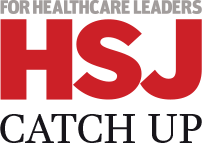- NHS England guidance tells trusts to monitor harms caused by care in “unplanned settings”
- NHSE says corridor care is “not acceptable” but admits is “no longer in extremis”
- Reviews for systems’ preparedness for winter
NHS England has told trusts to monitor patient harm caused by corridor care this winter – admitting it is happening regularly in some areas despite being “unacceptable”.
NHSE today issued new guidance for the use of “temporary escalation spaces”, including corridors and other “unplanned settings”, even though it says the practice “is not acceptable and should not be considered as standard”.
Last winter trusts were sometimes tacitly encouraged to use corridor space, and to squeeze additional patients onto already-full wards, in order to reduce crowding in emergency departments, and release queuing ambulances — which in turn often leads to very long waits for emergency ambulances.
But in June, a Channel 4 documentary showed scenes of patients being neglected in corridors in the Royal Shrewsbury Hospital, bringing a lot of attention to the issue, and NHSE subsequently said corridor care “must not be considered the norm”. The Royal College of Nursing said it should be a “never event”.
Today’s NHSE guidance warns some trusts are using such spaces more regularly than they should be due to “the current healthcare landscape”, and admitted “this use is no longer in extremis”.
The guidance – setting out “principles for providing safe and good quality care” in corridors and other “unplanned” spaces – has been published along with NHSE’s annual letter setting priorities for the coming winter.
It says systems should “consider reporting the number of patients” in these settings, and said trusts “need to monitor the risks of potential harm, the actual harm that has occurred and the impact on patients and staff of the use of TES”.
This should include — but not be limited to — complaints, “duty of candour” incidents and information from patient and staff surveys. Trusts should provide “real time quantitative and qualitative harm data” to senior teams and chief executives, and have “mechanisms” to evaluate harm.
The new guidance adds that it is “important to always maintain privacy and dignity” of patients in unplanned settings, make sure they are regularly reviewed by clinicians, “must be able to get quality sleep”, and have access to bathrooms and hot meals.
Winter letter
In the winter letter sent to trusts and systems on Monday, NHSE told trusts to “ensur[e] care outside of a normal cubical or ward environment is not normalised; it is only used in periods of elevated pressure; it is always escalated to an appropriate member of the executive and at system level; and it is used for the minimum amount of time possible.”
Elsewhere, NHSE said it would review what each of the 42 integrated care systems had done to cut emergency waiting times and improve safety. NHSE’s Getting It Right First Time team will review data on all acute hospitals.
HSJ recently reported how senior NHSE teams will be visiting 19 sites to provide “urgent support” to avoid deterioration in emergency care performance before winter.
The letter also pledged to “upgrade” live data centres to manage demand, strengthen same day emergency care and offer more falls services for older people.
HSJ Integrated Care Summit | 10-11 October 2024 | Crowne Plaza Chester
The HSJ Integrated Care Summit is a unique platform for ICS leaders to discuss the opportunities and challenges of delivering truly integrated care with colleagues from NHS England, social care, local authorities and VCSEs.
Creating and delivering a population health-centric model of service delivery requires tough decisions around investment, workforce allocation, provider vs system accountability and so much more. Join this Chatham House debate to discuss all these challenges, and collectively shift the dial towards a preventative national health and care system
For more information and to book your tickets click here.Source
NHSE guidance and letter
Source Date
September 2024



























5 Readers' comments